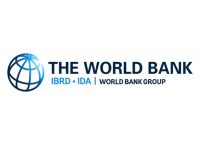Primary Functions
- Utilizing ultra-filtration as a wastewater treatment method is a good practice for reducing organic pollutant concentrations in adhesive manufacturing.
Detailed Description
Adhesive and solvent manufacturers mainly create pollutant intense wastewater via washing of process vessels and lines. Wastewater in this industry is typically high in suspended soils and oil and grease. Ultra-filtration is a treatment method that is particularly effective in removing suspended solids, oil and grease, and complex heavy metals. Specifically, the U.S EPA recommends ultra-filtration as a viable process for separating adhesives and sealants manufacturing wastewaters into low-volume concentrate streams. Advantages of ultra-filtration over conventional treatment process include:
- Ultra-filtration requires no heat addition
- Ultra-filtration is economical at both small and large scales
- Ultra-filtration systems are very simple to operate
- Energy requirements for ultra-filtration are low since operation process through the pumping of liquids
- Ultra-filtration performs best with chemically-stabilized emulsions
- Ultra-filtration is generally insensitive to shock loading
- Concentration volume will be significantly less than that produced in a coagulation-solid separation process.







